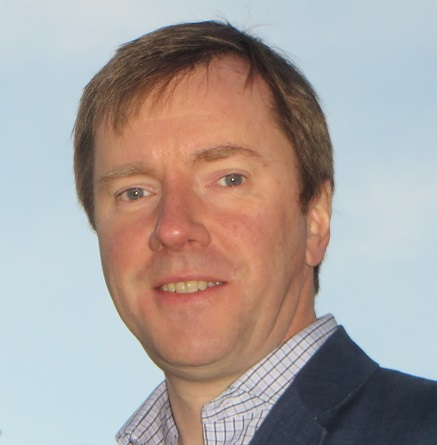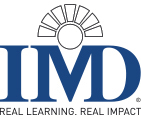- Innovation
Using Pretotypes to Drive Innovation
IMD’s route to transforming technology into working solutions quickly
All businesses are being reshaped by new technologies. Digital transformation is the stuff of numerous articles, conferences and research projects, all trying to understand and clarify what are its primary drivers, and how organizations can best cope with the changes it brings. However, the opportunity for business executives to get valuable hands-on experience of new technologies that can transform their organizations is still difficult to come by.
In response to this IMD, the leading Swiss business school, has paired up with the equally prestigious technology institute EPFL, its academic neighbour in Lausanne on the shore of Lake Geneva, to provide executives with a twin perspective on how new technologies can be effectively leveraged to improve business performance. EPFL, (École Polytechnique Fédèrale de Lausanne) is currently ranked as 12th best engineering and technology university in the world, sitting between Berkeley and Harvard, so it sits in prestigious company.
The TransformTECH program tackles the digital transformation challenge in two parts, firstly by examining the four key technology disruptors: AI, IoT, Blockchain and Intelligent Robotics. Under the guidance of four professors from EPFL, each expert in one of these areas, participants are introduced to the current state of what these technologies can deliver, and what lies ahead in the near future, and critically how each interacts with the others. With this grounding the participants engage with the IMD faculty to develop a project of their own design that will benefit their own organizations.
In the initial run of this program the large majority of the participants were individually representing their own organizations, but in the next program there will be several organizational teams present, that can develop projects for their organizations more impactfully.
Bettina Büchel, Professor of Strategy and Organization at IMD and co-director of the TransformTech program, explains that new technologies essentially bring three benefits to organizations, they can reduce costs of current products and service processes; they can improve those current products and service experiences for customers; and they can create entirely new products and services for customers.
In parallel with these benefits however is the relentless waves of new information, forever changing capacities and consequent need for executives to constantly be re-evaluating what these technologies can do for them. “The opportunities these technologies create are abundant – there is a need to really derive the business benefits” says Büchel, before explaining that this program is specifically designed to give participants hands-on experience of the technologies and the time and space to play around with them “so that they can experience the technologies first hand.”
Central to the program is the ‘Pretotype Kit’. Google’s ‘Engineering Director and Innovation Agitator’ Alberto Savoia created the concept of pretotypes in 2009, based on concepts like ‘building is better than talking’, ‘simplicity beats features’ and ‘now beats later’…. pretotypes are super-simplified models of future products or services, much like a wireframe is the first stage in web-design. A pretotype is perhaps best described as a prototype of a prototype.
The pretotype kit is used by the participants to allow them to create simple constructs of their projects and highlight the interconnections between the constituent technologies, so gaining a more comprehensive understanding of the systems they are creating and potential weaknesses and flaws. The EPFL professors can then quickly assess these models and feedback advice and suggestions to the participants.
With this enhanced practical understanding the focus shifts to the commercial side, where the IMD expertise comes in to assist with the business model creation and verification, how the concept will work within the organization and critically how it can be scaled-up effectively (or not). This process also has the significant advantage that it helps the participants become very familiar with explaining their concepts and sharpening their product pitches so that they can best manage its adoption both within their organizations and to the consumer.
IMD works with participants before they even arrive in Lausanne to ensure that the project ideas are suitable for the program and that the teams can hit the ground running with them. This pre-program planning is vital, as the participant groups can be quite varied in their technology and commercial experience and knowledge. Very loosely, Büchel says that often the younger participants have the greater technology know-how and expertise, but lack the commercial implementation experience, while more senior participants can bring the reverse levels of knowledge. This balance works well as all participants can benefit from the others insights, experience and knowledge.
IMD is a top-ranked business school, expert in developing leaders, transforming organizations and creating immediate and long-term positive impact.
ARTICLES YOU MIGHT LIKE
VIEWPOINT
Cognitive neuroscientist, Lynda Shaw, explains how to understand and support intrapreneurs
DEVELOPING LEADERS QUARTERLY MAGAZINE AND WEEKLY BRIEFING EMAILS


































